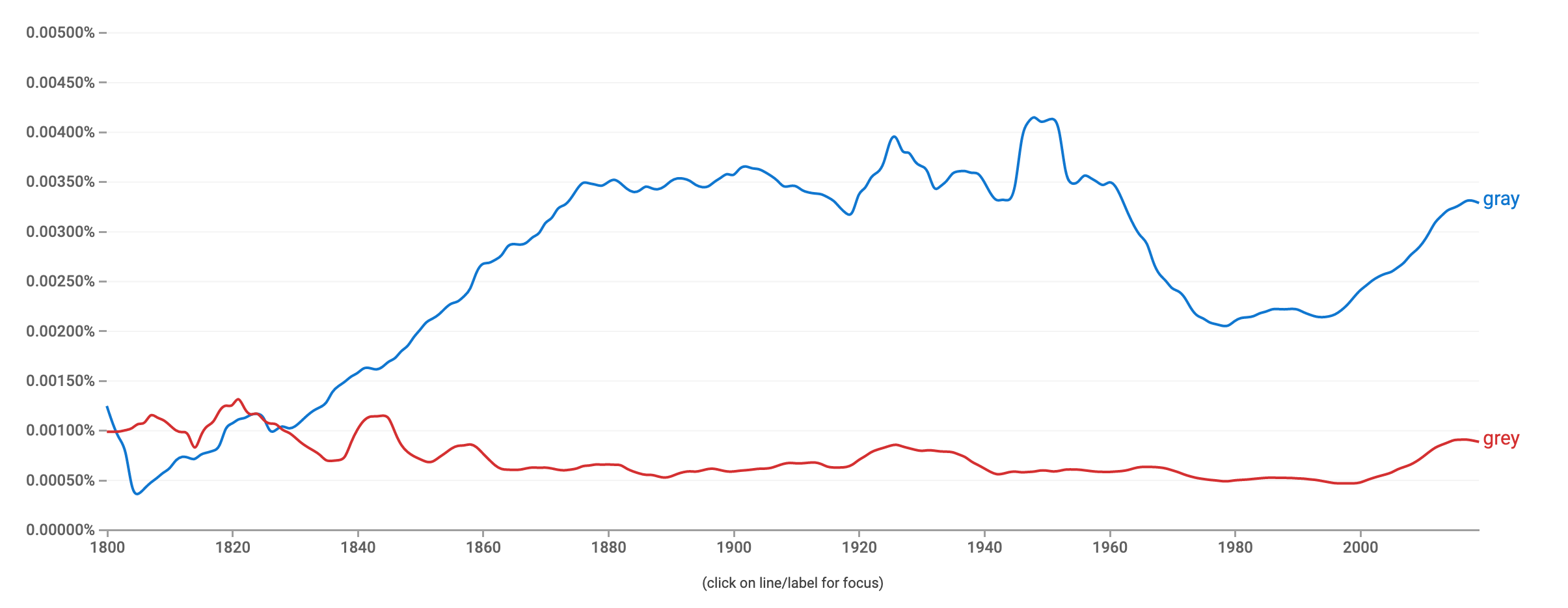
Editing Tips: What to Do with Variant Spellings
If you want to pursue a career in proofreading, sooner or later you will encounter words that have variant spellings (i.e., words with more than one spelling). In this post, then, we’re going to look at some common types of variant spellings and how to proofread them.
Dialect-Based Spelling Variants (UK and US English)
The most common spelling variants occur when different dialects use different spellings for the same term. This is most obvious in UK and US English, where there are systematic spelling differences for certain letter combinations and word endings.
As a proofreader, you should be familiar with the most common differences already. For example, you should know that US English favours “-er” endings over “-re” ones in words like “centre/center,” “fibre/fiber,” “sombre/somber,” “litre/liter,” and so on.
However, you also need to be aware of exceptions to these trends, such as:
- UK English uses “metre,” with the standard “-re” spelling, for the measure of distance and the poetic term, but it uses the US-style “meter” for an instrument used to measure something (e.g., a “gas meter,” a “speedometer,” and similar devices).
- Many US theaters use the UK spelling in their name (e.g., the Saenger Theatre in New Orleans), even though “theater” is the standard spelling in US English.
There are also cases where the spelling associated with one dialect is a rare variant in another dialect. “Grey,” for example, is standard in UK English, but some publications also accept it as a variant spelling in the US. This means that it will not be picked up by a spellchecker. But since “gray” is by far the most common spelling in the US, you would want to check uses of “grey.”
If you’re unsure of how widely used a spelling is in US or UK English, Google’s Ngram Viewer is your friend. Simply enter the spellings and select a dialect, then you can compare usage over time. If your client seems to have used the less common spelling, such as with “grey” in US English, you can then leave a comment prompting them to check the non-standard usage.

Non-Standard Spellings in Proper Nouns
Proper nouns often use archaic or unusual spellings of otherwise familiar words.
Take Reading Gaol, for example. The spelling “gaol” (as opposed to “jail”) is archaic and would not generally be used outside of this context. Were you to see it elsewhere, then, you might correct it to use the more modern spelling. But in the name of a building, the old spelling is fine.
Company and product names may also be spelled eccentrically as a stylistic choice. Some well-known examples include “Krispy Kreme,” “Froot Loops,” and “Tumblr.”
When you see a non-standard spelling in a proper noun, then, make sure to look it up online.
Formal vs. Informal Spellings
Sometimes, it is “alright” to use informal or simplified spellings in a piece of writing. “Alright,” for instance, is a variant spelling of the term “all right.” And while you would correct “alright” if it appeared in a piece of formal writing, since it is still considered non-standard, it may not be a problem elsewhere as most people are familiar with what “alright” means.
Whether an informal or non-standard spelling is acceptable, then, may depend on the context.
In some cases, non-standard spellings may even be preferable. For instance, while “gonna” and “gotta” would be entirely out of place in an academic paper, they might be more effective than “going to” and “got to” at capturing a casual, informal voice in a novel or advertisement.
If you spot a non-standard spelling, then, think about the context before making a correction.
The only proviso here is consistency: if, say, a client uses “gonna” in one place but “going to” in another with no clear reason for the change (e.g., if one character in a story uses less formal language than the others), you will want to flag this for your client to check.
Compound Words and Compound Plurals
Compound words can be open, closed, or hyphenated. However, some compound words are flexible in this regard, meaning you may need to watch out for spelling variants.
This is especially common when a word starts out as hyphenated and later becomes a single word. Examples of this include “email” and “ebook,” which are now both commonly written as closed compounds, but which were once commonly hyphenated (i.e., “e-mail” and “e-book”).
Similarly, some plurals of compound words have variant spellings based on which part of the term is pluralized, such as with “cupsful” and “cupfuls.” The former is pluralized as it would be were the words separate (i.e., “cups full”); whereas the latter treats the compound as a word in its own right and pluralizes it by simply adding an “s” to the end (like you would most other nouns).
In these cases, where multiple spellings are available, you will want to:
- Check your client’s style guide to see if a preferred spelling is provided.
- Check on Google Ngrams to see if either variant is more common in a given dialect.
But if no guidance is available, just check that one spelling is used consistently for each term.
Other Variant Spellings
Finally, there are variant spellings that don’t fit neatly into any category or follow any clear rules. This might be frustrating, but it is something you may have to deal with as a proofreader!
Take “usable,” for example. This is by far the most common spelling for this word in any English dialect. And 99% of the time, it will be the correct spelling to use for any writer. However, UK and US dictionaries both list “useable” (with an extra “e”) as an acceptable variant spelling.
Were you to see “useable” in a document, then, you might want to flag it for your client, noting that it is an unusual spelling in modern English and suggesting using “usable” instead. But, ultimately, this comes down to your client’s preference. And if they opt for “useable,” no matter how unusual this choice might be, your role will be limited to checking for consistency.
We mention this here just to highlight that dealing with variant spellings is not simply a matter of following set rules. As with many aspects of proofreading and editing, there is a subjective element at play, and there won’t always be a clear “right” or “wrong” answer.
As a proofreader, then, you need to be vigilant! If you see an unfamiliar spelling, don’t just correct it automatically. Instead, check that it isn’t a variant form your client has chosen to use.
Becoming A Proofreader
If you would like to brush up on the basics of spelling, including regional spelling variants, then check out our Becoming A Proofreader course. Claim your free trial today to find out more!



Leave a Comment
Your email address will not be published.